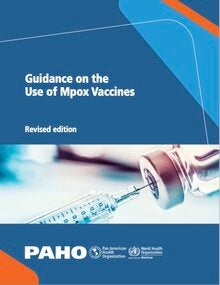On 23 July 2022, the WHO Director-General declared the mpox outbreak a public health emergency of international concern (PHEIC). A coordinated response was launched, aimed at interrupting transmission and protecting vulnerable groups, and a number of recommendations were made, including vaccination. These temporary recommendations apply to different groups of countries, based on their epidemiological situation, patterns of transmission, and capacities. These recommendations include different aspects such as: the implementation of a coordinated response, community engagement and protection, surveillance and public health measures, clinical management, and infection control, among others. WHO recommends use of the vaccine for countries that have imported cases of mpox in the population and/or human-to-human transmission of monkeypox virus, including in key population groups and communities at high risk of exposure.
The overall goal of the global response to mpox as a PHEIC, is to stop human-to-human transmission and minimize zoonotic transmission of the monkeypox virus wherever it occurs. The use of vaccines can contribute to this response. However, vaccination should be considered a measure to complement primary public health interventions that include surveillance, early case detection, diagnosis and care, isolation and contact tracing and follow-up, and self-monitoring to reduce contacts.
This document aims to provide useful accessible, and understandable information about mpox vaccines in order to facilitate deployment of vaccination strategies in the context of the current epidemiological scenario and based on the recommendations of the VIII Ad Hoc Meeting of the PAHO Technical Advisory Group (TAG) on Vaccine-Preventable Diseases. |

